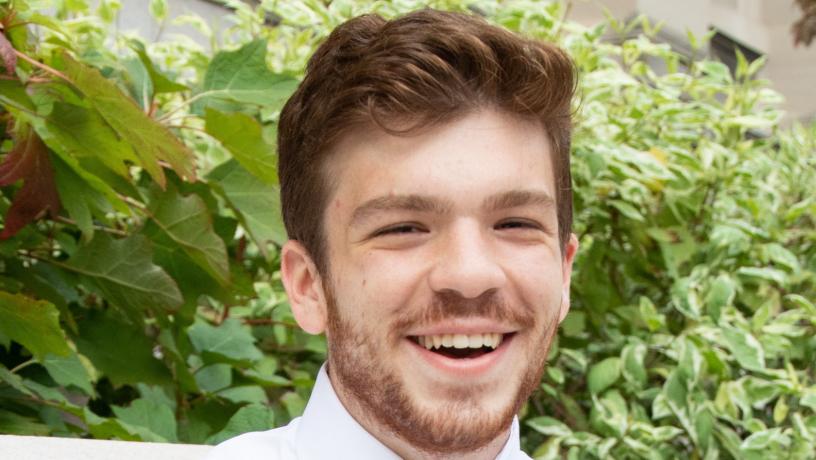Michael Kirschner ’20 Receives Fulbright Scholarship
The graduating biomedical engineer will carry on genetics research at the University of Copenhagen

Michael Kirschner ’20 has earned a prestigious Fulbright Scholarship to the University of Copenhagen in Denmark. The graduating biomedical engineer will continue his studies in genetics research.
“I study how biological traits emerge from complex molecular networks,” Kirschner says. “I’ve had the opportunity to engineer a biological system to model and study these networks, utilizing innovative technology and computational biology to analyze and quantify the thousands of interactions at play.”
Over the past two years, Kirschner has been at the Columbia University Irving Medical Center (CUIMC) as part of Professor Rodney Rothstein’s lab—where he’s currently been the only undergraduate and Columbia Engineering student—examining yeast as an analogue for how cancer cells rapidly divide and replicate, synthesizing numerous nucleotides to build their DNA.
Current therapies operate by inhibiting nucleotide synthesis and thus DNA replication, killing cancer cells faster than regular cells. Kirschner has been modeling this effect in yeast cells, searching for cellular processes that are also affected.
“A couple of summers ago, I found an unexpected relationship between nucleotide synthesis and the mitochondria, the powerhouse of the cell,” he explains. “When the functions of both are inhibited, they selectively hinder cell growth. Ever since, I’ve been trying to tease out this relationship and understand its implications for cancer therapy.”
During his time at the University of Copenhagen, Kirschner aims to bring his work to fruition in the lab of Professor Michael Lisby.
“What’s great about Professor Lisby’s lab is that it specializes in genetic screening in a way that will propel my work,” he says. “I hope to better understand the relationship between nucleotides and mitochondria, and want to see how these cells react when exposed to chemotherapy.”
Kirschner also plans to volunteer in local hospitals and clinics, if possible, to begin getting acquainted with other countries’ healthcare systems and practices. Looking ahead to medical school, he says, biomedical engineering has proved an ideal bridge between the practice of medicine and expanding physicians’ toolkits. Like his fellow Fulbright recipient Bunmi Fariyike, he names Aaron Kyle, senior lecturer in the discipline of biomedical engineering, as a particularly inspiring mentor.
“Professor Kyle consistently pushes us to be better engineers, challenging us to question each element of the design process from early problem definitions to late-stage prototype testing and development,” Kirschner attests.
Currently back home in Scarsdale, New York, Kirschner is focusing on coursework and medical school applications in addition to preparing for his Fulbright. He’s attended the virtual COVID-19 symposium offered through CUMC and participated in a virtual design challenge on the virus with Johns Hopkins University.
“I’ve found that focusing my thinking on COVID-19 science innovation has helped me process these challenging events,” he said. “These circumstances highlight the significance of the work we do as biomedical engineers, identifying pressing problems and collaborating to develop novel solutions.”
In years to come, Kirschner hopes to attend medical school and enter clinical practice. In the long run, he hopes to become a physician-scientist linking his engineering and medical backgrounds to develop novel innovations and therapies while still working with patients.
“I’m proud to be part of a community that can answer the urgent needs of society, especially facing a pandemic,” he said.
I’m proud to be part of a community that can answer the urgent needs of society, especially facing a pandemic.
